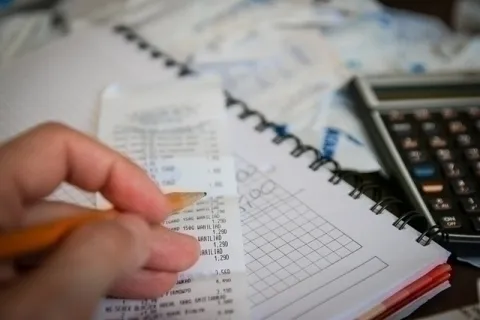Can you explain the role of regulatory bodies like the SEC in trading?
» Rules, Regulations, and Compliance- Regulatory bodies like the SEC protect investors by ensuring fair and orderly functioning of the securities markets.
- They enforce compliance with financial laws and regulations to prevent fraud and market manipulation.
- The SEC oversees the disclosure of important financial information, maintaining transparency in the marketplace.
So, I was thinking about the whole concept of trading and there's this one part that's got me all twisted. Like, I know there's this thing called the SEC, and apparently, they have this big role in keeping everything in check. But I'm just trying to wrap my head around what they really do. Are they like the police of Wall Street or what? And how do they interfere with the daily trading going on? If anyone can shed some light on this, I'd appreciate it.
Absolutely, the role of regulatory bodies like the SEC, short for the Securities and Exchange Commission, in trading is pretty pivotal. Basically, they work to ensure a fair, orderly, and efficient market.
You see, they're responsible for enforcing the laws regarding securities trading, which include stocks, bonds, options, and other types of financial instruments. This keeps everyone on a level playing field, and helps prevent shady stuff like insider trading or market manipulation, which you might be familiar with from the movies.
In essence, the SEC is like the traffic cop for the financial highway – they oversee and regulate the industry to keep everything moving smoothly. They also provide protection to investors, helping to instill trust in the financial markets.
In terms of their interference with daily trading - well, they don't literally interfere with the trades or transactions themselves, but they have put rules and regulations in place that everyone must follow. In that sense, you can say they set the pace for how trading happens.
And on top of all that, the SEC provides public access to certain kinds of information about public companies, which can be crucial when you're deciding where to invest your hard-earned cash.
So, in a nutshell, they're kind of like the lifeguards of the trading pool. They may not be in the water with swimmers all the time, but they’re there, watching, making sure everyone is safe and the game is played fair.
Sure thing, regulatory bodies like the SEC essentially act as watchdogs in trading. They enforce fair practices, prevent misconduct, and protect investor's interests. They may not meddle in every transaction, but they're crucial for maintaining trust and order in financial markets.
Well, in theory, the SEC should check all that. But, there's always a question of how effective they really are in practice. Just saying.
Regulatory bodies like the SEC don't involve themselves in individual trades but establish rules to govern trading overall. Their goal is to maintain transparent, fair, and efficient markets for investors.
Interesting points raised here. Anyone ever ponder how the effectiveness of these regulatory bodies might be measured or evaluated? I mean, how do we know they're really serving us, the investors?
Heh, it's a bit like asking how we know Santa Claus has checked his list twice, right? I mean, we're told he does, but does anyone actually verify it? The SEC's a bit like that. They're checking their list and trying to make sure everyone's naughty or nice in the financial world, but there's always a bit of mystery involved! But jokes aside, it's a valid point. The world of trading could use a bit more clarity when it comes to accountability, considering it's the hard-earned money of folks at stake. Maybe they need something like a SEC-Santa Claus who makes an annual visit to announce who's been naughty or nice in trading! Just a thought!
Well, I reckon transparency could certainly use a boost in this field. It certainly offers food for thought about how these regulatory bodies maintain a check and balance within the system, doesn't it?
Definitely food for thought here. We trust regulators to do their jobs, but maybe there's room for more vigilance from our side, too? After all, we're the ones directly affected by the outcomes in trading.
Certainly, there's a call for increased individual due diligence and awareness to complement the regulatory oversight provided by bodies like the SEC.
Spot on – it's great to see a push for individual empowerment in understanding the financial landscape alongside regulatory actions.
So if the SEC is the financial watch dog, maybe we should consider ourselves the neighborhood watch? Got to keep an eye on the watchdog to make sure it doesn't nap on the job!
Emphasizing individual participation, it could be said that the ecosystem of financial regulation operates not solely on the actions of the SEC but also on the vigilance of individual investors. Engaging with the mechanisms of oversight could entail investors taking proactive steps in their financial education, staying informed about regulatory updates, and holding the regulators accountable through the democratic process. This collective effort could potentially lead to a more resilient and just financial marketplace.
- What are some trading platforms that allow for social trading/copy trading? 6
- Are there any tools that can help me with trading psychology and discipline? 2
- How do I deal with the fear of missing profits, or FOMP? 3
- Can you explain the concept of slippage in trading? 1
- How does seasonality impact market analysis? 4
- What is a securities' yield and how can it be analyzed? 5
- How do I use price charts for market analysis? 3
- Can anyone explain the principle of contrarian investing? 4
- Can you explain the concept of scalping in trading? 3
- How can I calculate the risk-reward ratio in my trades? 2
- How do you navigate the regulations surrounding short selling? 318
- What are Forex trading and its basics? 290
- How does seasonality impact market analysis? 250
- How do you manage stress during volatile market conditions? 216
- How does a stop-loss order work in trading? 205
- What tax implications should I consider when trading? 199
- What are the best platforms for online trading? 192
- What's the difference between day trading and long-term investing? 188
- What is swing trading and how is it different from day trading? 185
- How do you avoid letting past trading successes or failures impact your future decisions? 180

We have compared the best crypto exchanges for you. Just take a look at our free crypto exchange provider comparison.

We have compared the leading crypto tax tool providers for you. Check out our free crypto tax tool provider comparison.
Blog Posts | Current

The Trader's Dilemma: Dealing with Losses in Trading
As a trader, losses are an inevitable part of the game. Even the most successful traders will experience losing trades...

Maximizing Returns: The Importance of Rebalancing Your Portfolio
Rebalancing your portfolio is an important part of any long-term investment strategy. It involves periodically adjusting your portfolio's asset allocation...

Don't Fall for the Hype: The Risks of Using Trading Bots
As a beginner trader, you may have come across the idea of using trading bots to automate your trading and...

Automating Your Trades: The Power of Trading Algorithms
As an avid trader, you've probably heard the buzz around trading algorithms. But what are they, and how can they...

The 5 most common mistakes made by crypto traders
The 5 most common mistakes made by crypto traders Crypto trading is becoming increasingly popular, but there is great potential to...

Breaking Down the Buzzword: What is a Trading Bloc?
Are you familiar with the term "trading bloc"? It may sound complicated, but it's actually a concept that can have...

Different Cost Average Trading Strategies
Cost Average Trading is one of the most popular trading strategies used by investors to minimize their risk and maximize...

Mastering Your Mindset: The Key to Successful Trading Psychology
As a trader, your success in the markets depends not only on your technical skills and market knowledge, but also...

From Chaos to Consistency: Why a Trading Setup is Key to Success
Trading is an exciting and rewarding way to make money, but it can also be overwhelming for beginners. One of...

Protect Your Capital with Effective Risk Management in Trading
Risk Management As a beginner trader, you're likely eager to dive into the markets and start making some profits. However, before...
